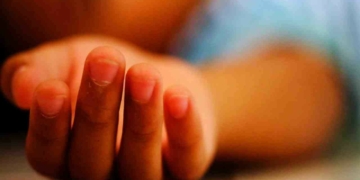- The One House Development Initiative estimates 150,000 out-of-school children in Osun State, emphasizing the need for urgent educational reforms
- OHI highlighted the struggles faced by people with special needs and urged the government to prioritize education and health for inclusive development
A non-governmental organization, One House Development Initiative (OHI), has raised concerns over the alarming number of out-of-school children in Osun State, Nigeria, estimating that the figure has reached 150,000.
The state’s poor performance in national examinations further compounds this issue.
During a Nation Building Conference in Osogbo, OHI’s Team Lead, Tubosun Olabomi, emphasized that Osun contributes significantly to Nigeria’s overall out-of-school children population.
This is worrisome, given that Osun’s population of 4.7 million results in a similar number of out-of-school children as Lagos, which has a much larger population of 21 million.
OHI also addressed the struggles faced by persons with special needs in the state. They highlighted the lack of essential resources such as perimeter fencing, teaching equipment, and vocational materials at the State Senior Secondary School.
Olabomi called on the government, particularly Governor Senator Ademola Adeleke, to prioritize education and health for special needs students and persons with disabilities, as many schools in Osun require urgent attention.
“There are challenges in our society that are fast becoming menaces. Education, Health, and Inclusion carry a bulk of them,” Olabomi stated.
Regarding the state’s health sector, OHI noted that Osun’s maternal and neonatal mortality rates are a concern. Although Osun ranks 7th in Nigeria for neonatal mortality, contributing to the country’s overall infant mortality rate of 55.2 per 1,000 births, Nigeria remains one of the worst countries globally for infant mortality, according to the CIA World Factbook.
OHI also stressed the marginalization of People with Disabilities (PWDs) and those with special needs, urging for their full inclusion in societal development efforts.
The NGO called on the government, individuals, and organizations to collaborate and chart a way forward for national development, particularly in education, health, and inclusion, ahead of October 1, 2024.
At the event, Hon. Bankole Omisore, Special Adviser to the Governor on SDGs and Multilateral Relations, commended OHI’s efforts. Represented by his desk officer, Mr. Gbenga Omoetan, Omisore expressed the government’s readiness to partner with the NGO in designing programs that promote inclusive, quality education and human capital development.










Discussion about this post